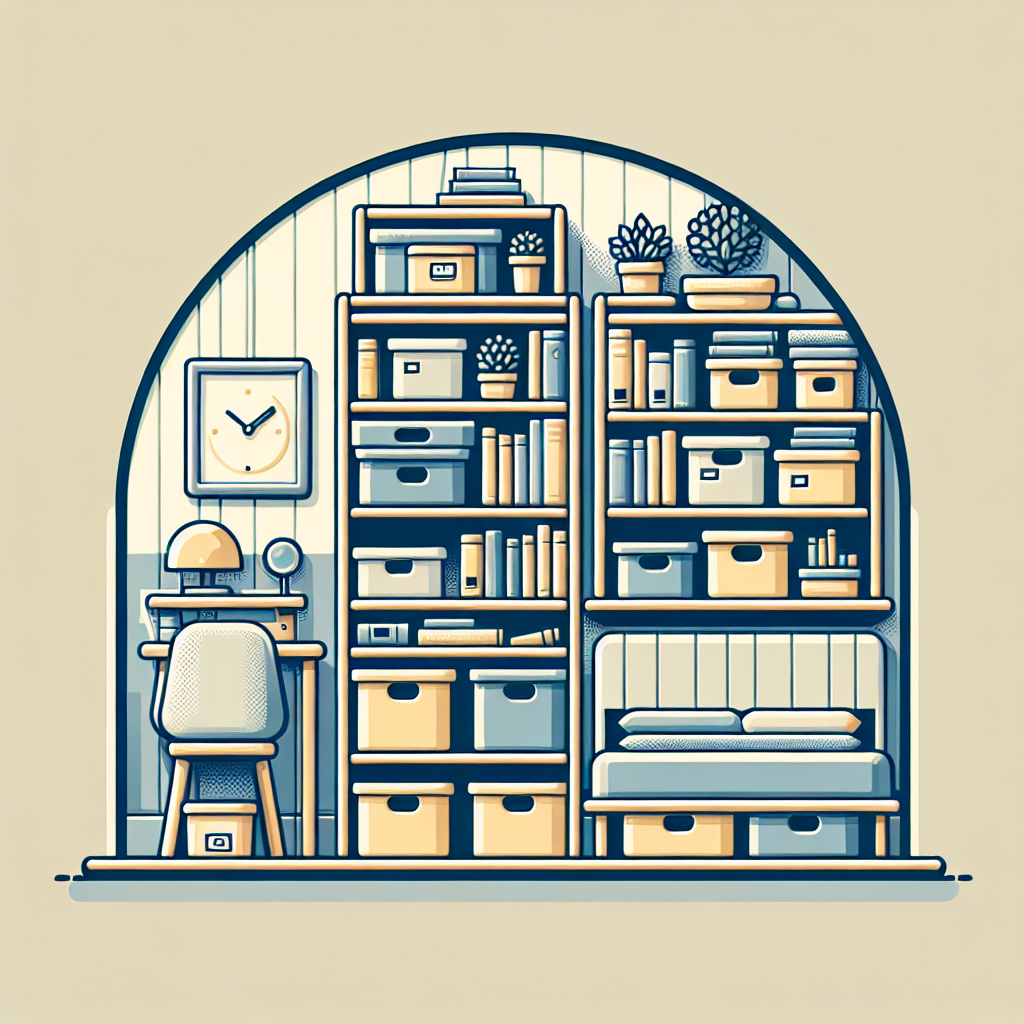Are you tired of constantly searching for misplaced items and feeling overwhelmed by the clutter in your home? Look no further, because in this article, we will share some practical tips to help you maintain home organization. Whether you’re a busy professional, a parent juggling multiple responsibilities, or just someone who wants to create a more peaceful living environment, these tips will help you create order and harmony in your home. Say goodbye to chaotic spaces and hello to a well-organized, stress-free living space!
Decluttering
Start by sorting
When it comes to home organization, one of the first steps you should take is decluttering. Begin by sorting through your belongings and deciding what to keep, donate, or throw away. Take each room one at a time and go through every item, asking yourself if it serves a purpose or brings you joy. Be honest with yourself and let go of things that no longer serve you.
One room at a time
Decluttering can feel overwhelming, especially if you have a lot of stuff. To make the process more manageable, focus on one room at a time. Start with a room that you spend the most time in or one that feels particularly cluttered. By tackling one room at a time, you can give each space the attention it deserves and avoid getting overwhelmed by the mess.
Create designated spaces
Once you have decluttered, it’s important to create designated spaces for your belongings. Assign specific areas for different types of items, such as a coat rack for jackets, a shoe rack for shoes, or a basket for mail. Having designated spaces not only helps you stay organized, but it also makes it easier to find things when you need them.
Implement a storage system
Having a storage system in place is crucial for maintaining home organization. Invest in storage bins, shelves, and organizers that suit your needs and help you maximize the space in your home. Utilize vertical space by installing shelves or hanging organizers on walls. And don’t forget to label your storage containers to easily identify what’s inside. A well-thought-out storage system will make it easier to keep things in order and avoid clutter buildup.
Daily Cleaning Routine
Make the bed every morning
One of the easiest and most effective ways to start your day with a sense of organization is by making your bed. It instantly transforms the look and feel of your bedroom and sets the tone for a productive day ahead. Plus, making your bed helps create a tidy environment and encourages you to maintain cleanliness throughout your home.
Wash dishes immediately
A pile of dirty dishes can quickly create a chaotic and cluttered kitchen. Instead of letting them pile up, make it a habit to wash your dishes immediately after using them. This ensures that your kitchen stays clean and organized, and you won’t be burdened with a sink full of dishes later on. By incorporating this simple task into your daily routine, you’ll save time and energy in the long run.
Put things away after use
To avoid clutter and maintain a tidy living space, make it a habit to put things away after you use them. It’s all too easy to leave items lying around, but taking a few extra seconds to place them back in their designated spot will save you the headache of dealing with a messy home. Whether it’s tossing a dirty towel in the laundry hamper or returning a book to the shelf, this simple practice will keep your space organized.
Sweep or vacuum daily
Keeping your floors clean is an essential part of maintaining a organized home. Make it a habit to sweep or vacuum your floors daily, depending on the type of flooring you have. This will prevent dirt and debris from accumulating and make your space feel fresh and inviting. Plus, regular floor cleaning saves you from the dreaded task of deep cleaning later on.

Weekly Cleaning Schedule
Wash laundry
Keeping up with your laundry is crucial for a well-maintained home. Set aside a specific day each week to wash, dry, and fold your laundry. This helps prevent clothes from piling up and makes it easier to find what you need when getting dressed. Make it a point to put away clean laundry immediately to avoid clutter buildup and maintain an organized living space.
Clean bathrooms
Bathrooms are often the most used and easily neglected areas of our homes. Establish a weekly routine where you clean and sanitize your bathrooms thoroughly. Scrub the toilets, sinks, and showers, and wipe down mirrors and countertops. By consistently maintaining the cleanliness of your bathrooms, you’ll have a more pleasant experience and a clutter-free space.
Dust and polish furniture
Dusting and polishing your furniture not only keeps it looking clean and fresh but also helps prolong its lifespan. Set aside a specific day each week to dust surfaces, wipe down tables, and polish wooden furniture. This simple task will help maintain a clutter-free environment and create an organized and inviting living space.
Mop floors
In addition to daily sweeping or vacuuming, it’s important to mop your floors regularly. Depending on the type of flooring you have, choose a suitable cleaning solution and mop your floors at least once a week. This will remove any grime or dirt that has accumulated and leave your floors looking clean and shiny. Plus, a well-maintained floor adds to the overall organization and cleanliness of your home.
Meal Planning
Plan meals ahead
Meal planning is a fantastic way to stay organized in the kitchen and streamline your grocery shopping. Take a few minutes each week to plan out your meals for the upcoming days. Consider your schedule, dietary preferences, and any ingredients you already have on hand. This not only saves you time and money but also ensures that you have everything you need to prepare healthy and delicious meals.
Create a shopping list
Once you have your meals planned out, create a detailed shopping list before heading to the grocery store. A well-planned shopping list helps you stay focused and prevents impulse purchases. Be sure to include all the ingredients and staple items you’ll need for the week. By sticking to your list, you’ll avoid cluttering your pantry and ensure that you have everything you need to cook your planned meals.
Cook and freeze meals in batches
Not only does cooking in batches save you time and effort in the kitchen, but it also helps you maintain an organized and clutter-free space. Set aside a day each week to prepare multiple meals and portion them into individual containers. Freeze these meals and simply thaw and reheat them when needed. This eliminates the need for daily cooking and minimizes clutter in the form of food containers and leftover ingredients.
Clean up as you go
The key to maintaining an organized kitchen is to clean up as you go while preparing meals. Rather than letting dirty dishes and utensils pile up, wash them and put them away immediately. Wipe down countertops and stovetops as you finish using them. By incorporating this habit into your daily cooking routine, you’ll save time and energy and keep your kitchen clutter-free.

Paperwork Management
Set up a filing system
Paperwork can easily become a source of clutter and disorganization if not properly managed. Set up a filing system to keep important documents organized and easily accessible. Use file folders or binders to categorize different types of paperwork, such as bills, medical records, and receipts. Label each folder or binder clearly to ensure you can find what you need quickly and efficiently.
Go paperless when possible
In today’s digital age, many documents can be accessed and stored electronically. Take advantage of this by going paperless whenever possible. Opt for electronic statements and receipts, and utilize cloud storage or digital document management systems to store important files. By reducing the amount of physical paperwork in your home, you’ll free up space and minimize clutter.
Sort and file documents regularly
To maintain an organized system, it’s important to regularly sort through and file your documents. Set aside time each month to review your paperwork and determine what can be discarded and what needs to be filed. Shred any unnecessary papers to protect your sensitive information and file the remaining documents in their designated folders or binders. Staying on top of this task will prevent overwhelming clutter buildup and ensure that you can efficiently locate important documents when needed.
Shred unnecessary papers
As you go through your paperwork, it’s important to shred any unnecessary papers that contain personal or sensitive information. This includes outdated bills, bank statements, and any other documents that you no longer need to keep. Invest in a reliable shredder and make it a habit to shred unwanted papers on a regular basis. Properly disposing of these items not only maintains home organization but also protects your personal information from falling into the wrong hands.
Utilizing Labels and Containers
Label storage containers
Labeling your storage containers is a simple yet effective way to maintain home organization. Use labels to clearly indicate the contents of each container, whether it’s seasonal clothing, holiday decorations, or miscellaneous items. This eliminates the need to open every container to find what you’re looking for and saves you time and frustration. Invest in a label maker or use adhesive labels to ensure your labels are easily readable and long-lasting.
Use clear bins for easy visibility
When it comes to storage containers, opting for clear bins is a game-changer. Clear bins allow you to see the contents without having to open them, making it easier to locate and retrieve items when needed. Whether you’re storing crafts, toys, or kitchen supplies, clear bins provide a visually organized and clutter-free storage solution.
Categorize items with labels
In addition to labeling storage containers, consider categorizing items within each container. This can be particularly helpful when dealing with larger containers that hold multiple types of items. Use dividers or smaller containers within the main container to categorize specific types of items. For example, if you have a container for craft supplies, separate items like glue, scissors, and paints into smaller labeled containers. Categorizing your items within storage containers promotes organization and ensures that everything has its designated place.
Utilize drawer dividers
Drawer dividers are incredibly useful for maintaining an organized and clutter-free space. Whether it’s your kitchen drawers, bathroom vanity, or office desk, dividers help separate and categorize items within the drawer. Use them to store utensils, cosmetics, office supplies, or any other items you have in drawers. By keeping items neatly divided and visible, you’ll avoid digging through a mess of items and easily find what you’re looking for.

Implementing Daily Routines
Establish morning and evening routines
Having a morning and evening routine sets the tone for your day and helps you maintain a sense of organization. In the morning, take a few minutes to make your bed, tidy up your living space, and plan your day. In the evening, set aside time to clean up after dinner, prepare for the next day, and wind down. By incorporating these routines into your daily life, you’ll start and end each day on a positive and organized note.
Set designated times for cleaning
To avoid feeling overwhelmed by cleaning tasks, set designated times during the day or week to tackle specific cleaning chores. Whether it’s wiping down surfaces, vacuuming, or doing laundry, creating a cleaning schedule ensures that tasks don’t pile up and become overwhelming. Break larger tasks into smaller, manageable chunks and spread them out throughout the week. Having specific times dedicated to cleaning allows you to stay on top of household chores without it taking over your entire day.
Incorporate time for self-care
Maintaining home organization isn’t just about keeping your physical space clutter-free. It’s also crucial to prioritize self-care and mental well-being. Incorporate time each day for activities that bring you joy and relaxation. This could be reading a book, practicing yoga, taking a bath, or simply enjoying a cup of tea. By taking care of yourself and intentionally carving out time for self-care, you’ll feel more balanced and capable of maintaining an organized home.
Stick to a regular sleep schedule
A good night’s sleep is essential for overall well-being and productivity. Make it a priority to establish a regular sleep schedule and stick to it. Going to bed and waking up at consistent times helps regulate your body’s internal clock and promotes better sleep quality. A well-rested mind and body are better equipped to maintain home organization and tackle daily tasks effectively.
Digital Organization
Organize files and folders on computer
Just like physical clutter, digital clutter can also cause stress and make it difficult to find what you need. Take the time to organize your files and folders on your computer. Create a clear folder hierarchy that makes sense to you and label files appropriately. Whether it’s organizing documents, photos, or music, having a well-organized digital space saves time and reduces frustration when searching for files.
Backup important files regularly
Backing up important files is a crucial step in digital organization and ensures that your data is safe and secure. Set up automatic backups on an external hard drive or utilize cloud storage services to store copies of your files. This provides an extra layer of protection against data loss and gives you peace of mind knowing that your important files are backed up.
Declutter digital devices
Just like physical belongings, it’s important to declutter your digital devices regularly. Delete any unused apps, clear out old emails, and remove unnecessary files or documents. Take the time to organize your apps and arrange them in a way that is intuitive and easy to navigate. By keeping your digital devices clutter-free, you’ll save storage space and have a more efficient and organized user experience.
Delete unnecessary emails
Emails can quickly pile up and clutter your inbox, making it difficult to find important messages. Take the time to delete unnecessary emails and organize your inbox into folders. Create folders for different categories such as work, personal, or subscriptions, and move relevant emails into their respective folders. Regularly deleting and organizing emails keeps your inbox manageable and helps you locate important information with ease.
Keeping a Donation Box
Designate a donation box area
Keeping a designated area for donations helps you maintain a clutter-free home while giving back to others. Set aside a specific spot in your home, such as a corner of your closet or a shelf in the garage, for your donation box. This provides a constant reminder to declutter and encourages you to regularly evaluate your belongings for things you no longer need or use.
Regularly go through belongings
To ensure your donation box stays filled and clutter in your home is minimized, make it a habit to regularly go through your belongings. Set aside time each month to assess your items and determine what you can donate. Be honest with yourself and let go of things that are no longer useful or hold sentimental value. Regularly evaluating your belongings prevents clutter buildup and helps you maintain an organized living space.
Donate items in good condition
When selecting items to place in your donation box, make sure they are in good condition. Donating items that are clean, functional, and in good shape ensures that they can be used and appreciated by others. This not only helps maintain home organization but also allows you to give back to your community and make a positive impact on someone else’s life.
Keep a record for tax purposes
If you plan on claiming a tax deduction for your donations, it’s important to keep a record of what you donate. Make a list of the items you donate, their estimated value, and the date of donation. Additionally, consider taking photos of high-value items as documentation. This record will be helpful when tax season comes around and ensures that you receive the appropriate deduction for your generous contributions.
Maintaining a Minimalist Mindset
Focus on quality over quantity
One of the key principles of minimalism is focusing on quality over quantity. Instead of accumulating a large quantity of possessions, prioritize having a few high-quality items that you truly love and use. This mindset shift helps you avoid clutter and ensures that the items you have are meaningful and serve a purpose in your life.
Regularly evaluate belongings
To maintain a minimalist lifestyle, it’s important to regularly evaluate your belongings and reassess their value in your life. Take the time to go through your possessions and consider whether each item brings you joy or serves a purpose. If an item no longer serves you, consider donating or selling it. By regularly evaluating your belongings, you prevent clutter buildup and maintain an organized and intentional living space.
Adopt a one-in-one-out policy
To prevent clutter from entering your home, adopt a one-in-one-out policy. This means that for every new item you bring into your home, you commit to donating or discarding one item. Whether it’s a new clothing purchase, a kitchen gadget, or a decorative item, this policy ensures that your possessions do not exceed your available space and helps you maintain a clutter-free environment.
Practice gratitude for what you have
A minimalist mindset is centered around gratitude and appreciating what you already have. Cultivate a sense of gratitude for the items you own and the experiences they bring to your life. By focusing on what you have rather than what you lack, you’ll be less tempted to accumulate unnecessary possessions and will maintain a clutter-free and organized living space.
By following these practical tips, you can create and maintain a well-organized and clutter-free home. Whether it’s decluttering, establishing cleaning routines, or implementing digital organization strategies, these practices will help you make your space more enjoyable and functional. Remember, maintaining home organization is an ongoing process, so be patient with yourself and celebrate the progress you make along the way. Happy organizing!
